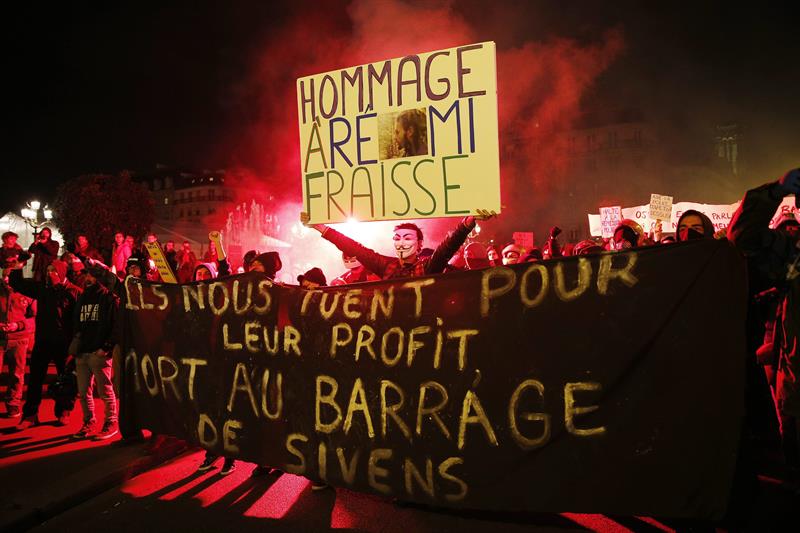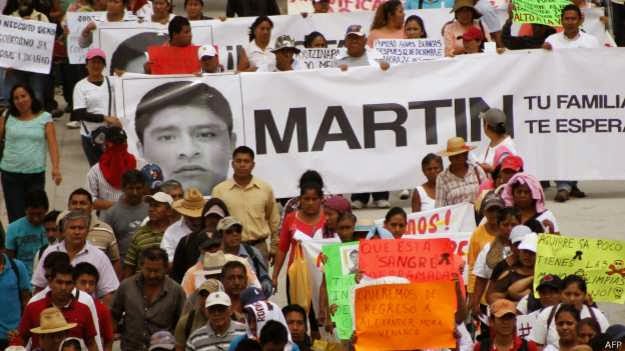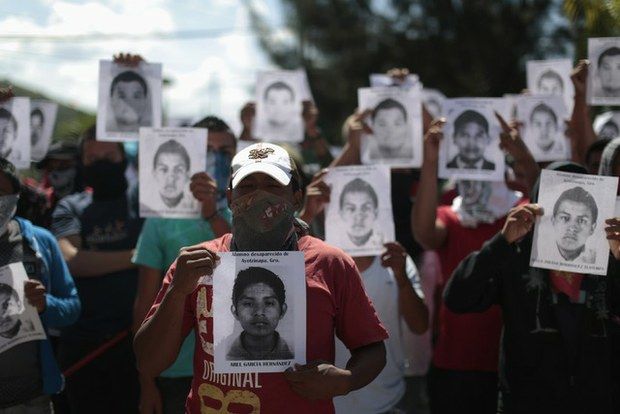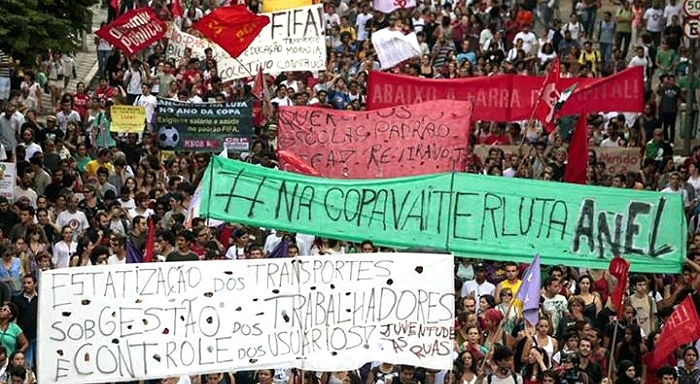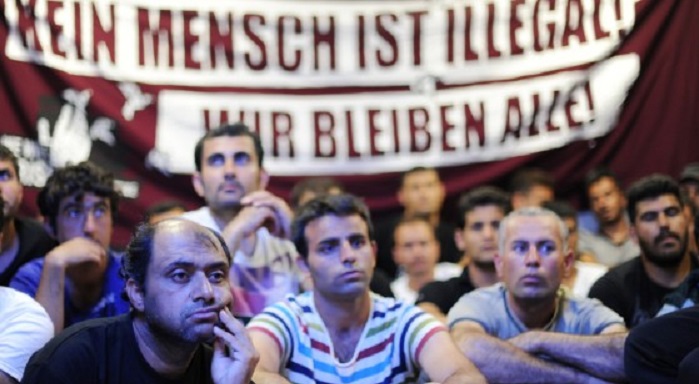Great students and workers’ demonstration in Chile
27/06/2013
PTR-CcC (Revolutionary Workers’ Party - Class against Class), from Chile
June 27, 2013
On June 26, the students’ struggle against the marketization of the education – a legacy of Pinochet’s regime which has been maintained and deepened by the Concertación coalition, which has governed since the return of democracy in 1990 – took a big step forward when workers and students marched together. 150,000 took the streets, strengthening the students’ struggle and intensifying the processes of class struggle that weakened the government and the regime. It became a national political event. Even the primary elections, that are going to be held on June 30, and the presidential elections on November 17, have being affected.
Workers and students demonstrated throughout Chile
The day before, more colleges, universities and public buildings were occupied, continuing the struggle of previous weeks, in which more than 100 colleges and universities were occupied and went on strike. The vanguard of the students’ movements, which has popular support, has kicked off the movement. The occupations are discussed in assembly and the students take the decisions through direct democracy. They also have organized workshops to discussed Marxism and the way forward for the movement.
On thehe 26, workers and students were mobilized during 15 hours throughout the country.
At 7a.m. blockade, barricades and workers and students’ rally started to meet and the main cities were occupied by the protesters.
At 8 a.m. the dock workers went on strike . Subcontracted copper workers went on strike and blocked the access to the workplace. Teachers went on strike too.
Between 11 a.m. and 1 p.m. demonstrations began in different cities- 100,000 people in Santiago, more than 10,000 in Valparaiso, nearly 20,000 in Concepción.
Duringthe demonstrations columns of workers were seen by those of the students, some of them, among others, were: the Dock Workers’ Union (“Unión de Trabajadores Portuarios”) ,which recently carried out a 22 days long strike–, the Confederation of Copper Workers – “Confederación de Trabajadores del Cobre”, CTC–, the copper workers’ union – “Sindicato de Trabajadores del Cobre”,SITECO–, the Teachers’ College –“Colegio de Profesores”–, the National Association of Oficials–“AsociaciónNacional de Funcionarios”, ANEF–, workers in the private sector like the f the transport workers of Valparaio, workers of the retailer “La Polar”, branches of the CUT, the Confederation of private sector workers “Confederación de EmpleadosParticulares de Chile”, CEPCH–. The Central CUT joined the demonstration.
The CTC said "We are here because the copper is ours and we want it back so that the children and young Chileans can receive a free and high standard public education. We want our resources back so the mining communities can develop, and our families can access to better health and can live a dignified old age”. The CEPCH stated that "Workers must now join the students’ movement, not just by expressing their support but by including our demands. We were silent. We think that the Labour Legislation should be changed, because the current one is shameful. SITECO said that "We know that work in a strategic sector of the economy and because of our experience and history of struggle we have tremendous power and an effective and strong capacity to mobilise ourselves. our only aim is to care for the most needed people in Chilean society, such as free education".
From 7 p.m. onwards more rallies took place in some districts in Santiago. The government response is to criminalise the protest by calling students and workers ‘criminals’ and ‘extremists. The Repression continued andmore than 100 people were arrested only in Santiago.
What’s next?
The Government intransigence and repression push students’ struggle even further and workers are joining the protestst.. The students’ mobilisation strikes and occupations continueNot even the electoral process could derail the struggle.. As many of the occupied schools are polling stations, the main parties discussed what to do, finally issuing an eviction order. Less than 10% of the youth will take part in these primaries. Rejection to right-wingparties and the ’Concertación’, as well as to every institution inherited from the dictatorshipis widespreading and growing.
There is general strike on July 11, called by the CUT and another day of protest is being organised.
A students’ triumph will strengthen the working class, in order to achieve this it needs the support of the workers. The day of struggle on the 26 was a step on that direction.
To conquer its demands, the student movement needs not just to confront the government and the whole system, but to overcome its own obstacles.
The struggles of 2011 left a lesson
In the 2011 struggle we learnt a lesson, that is, our struggle itself must be intensified until demands are achieved. But the bureaucratic eaders of the Confederation of Students of Chile, CONFECH –“Izquierda Autónoma”, “Federación de Estudiantes Libertarios”, ”Unión Nacional Estudiantil”, Communist Youth) and populist currents are trying to impose a defeatist balance, that is, that 2011 struggle already took place, that we must now keep our demands and mobilise only to put pressure on to the candidates, seeking for "concrete results" and "gathering strength". But what we need is a policy to win.
The role of the Revolutionary Militant Group –“Agrupación Combativa Revolucionaria”, ACR
The ACR is promoted by “Partido de Trabajadores Revolucionarios- Clase contra Clase” (PTR-CcC)- together with independent activists. In recent weeks, the ACR has been calling on the vanguard of the student movement, who is fighting again, to regroup in order to strengthen their struggle and get ready to win.
Assemblies attended by more than 400 students each took place in the cities of Valparaiso, Antofagasta and Santiago. In order to defeat the Government they have called for "For a Great Occupation" with the aim of recovering the spirit of the fight in 2011. We need organisations that are up to the students needs. This will allow also to show a way forwards to those students who are not yet organised. On the face of the 26, port, industry, mining and public health sector workers, attended these assemblies. Were also on the front line of the occupations, the strikes and in the streets, fighting for the workers and students unity and against the marketisation of the education, as a part of the struggle against the entire legacy of the dictatorship, which has been preserved and deepened by right parties and the Concertación. .
26/06/2013
Translated by Nicolás Bona
